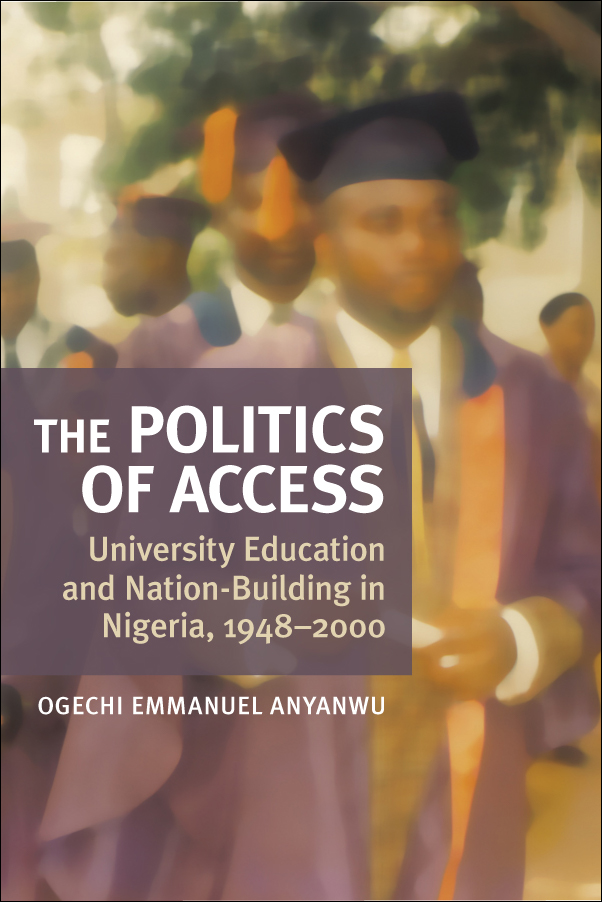
The Politics of Access: University Education and Nation Building in Nigeria, 1948-2000
Ogechi E. Anyanwu
$34.95 CAD / $41.95 USD
360 pages
6 x 9 inches
Paperback: 978-1-55238-518-0
Library PDF: 978-1-55238-519-7
August 2011
A scholarly exploration of the ways that the mass pursuit of university education not only decolonized elitist education a systems, but ultimately reshaped Nigeria in particular and Africa in general.
Access to university education in Africa was inadequate during the colonial period. With independence, various African countries moved away from the elitist colonial education system by embarking on programs designed to provide education to all, regardless of class, ethnicity, or creed. Nowhere in Africa has the question of access to university education reached such a crescendo of concern and posed such as challenge to the polity as in Nigeria. In illuminating the history of massification of university education in Nigeria, Anyanwu makes a significant contribution to our understanding of the challenges of nation-building in multi-ethnic and religious societies in Africa and demonstrates that the intractable issues in Africa’s university education system – such as academic quality, relevance, funding, and unemployment – flow from the creation and adoption of the massification system.
Through analysis of exceptionally rich data obtained from the Carnegie Corporation in New York, and from Nigeria’s national archives, author Ogechi Anyanwu demonstrates how the pursuit of mass university education not only decolonized the elitist British education system but also ultimately reshaped modern Nigeria. More importantly, he argues that the impact of these policies cannot be fully understood without looking closely at the intersection of domestic and external politics dictating the direction of higher education development as a vehicle for nation-building in Nigeria’s pluralistic society.
Although numerous studies have been made of Nigeria’s higher education development in particular, and that of Africa in general, no work has placed the pursuit of mass university education at the centre of that country’s postcolonial higher education reform or discussed it as a policy-driven and need-driven phenomenon. In The Politics of Access, Anyanwu undertakes a historical analysis of the diachronic impact of Nigeria’s domestic socioeconomic, political, and ethno-religious forces, as well as external interests, on the country’s policy initiatives, shifts, and outcomes of mass higher education policies.
Ogechi Anyanwu is an associate professor in the Department of History and African/African-American Studies at Eastern Kentucky University.
List of Abbreviations
Acknowledgements
Introduction
Chapter 1. The Politics of Colonial Education
Chapter 2. Toward Educational Reform: The Cold War, Decolonization, and the Carnegie Corporation, 1952-60
Chapter 3. The Ashby Commission, Regionalism, and University Education in the 1960s
Chapter 4. Centralization of Universities and National Integration, 1970-79: The Legacy of the Nigerian Civil War
Chapter 5. The Second Republic and the Burden of Expansion, 1979-83: Free Education, Science and Technology, and Quota System
Chapter 6. Rationalization Policy: The IMF/World Bank and Structural Adjustment Program, 1984-90
Chapter 7. Crisis of Nationhood: Funding Issues, Socio-Political Instability and Private University Education 1990-2000
Conclusion
Notes
Bibliography
Index
This monograph delves into an under-researched topic . . . It interweaves—to the reader’s benefit—an enriching narrative of the tempestuous high politics of the nation.
—Matt Gerth, Verified Buyer
A great read. Accessible and well written.
—Ogechi Anyanwu, Verified Buyer